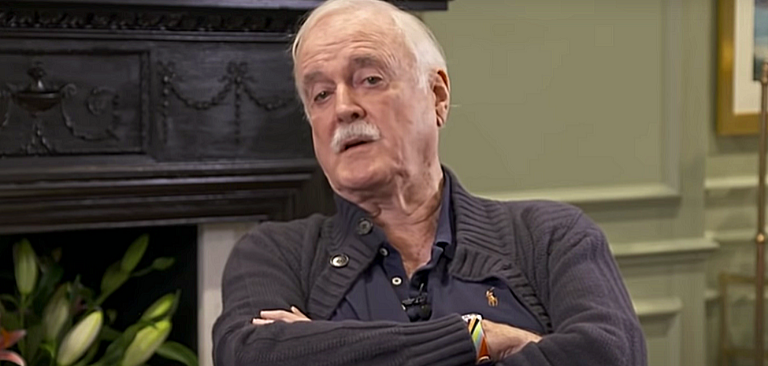One of the greatest British comedians of his generation, John Cleese of the Monty Python and Fawlty Towers fame, continues to be an outspoken critic of free-speech-stifling rules that are at this point permeating the entertainment industry, and in turn, inevitably stifling its creativity.
This was one of the points Cleese addressed during an online debate, while speaking on the topic of the way the kind of comedy he and others were creating 30 or 40 years ago would be affected by today’s climate that is less and less tolerant of any deviation from a rigid set of rules enforcing politically correct vocabulary and ideas.
Comedians being required to be extremely self-conscious and even self-censoring is not something conducive to a successful creative process, Cleese suggested.
“It’s disastrous to the creative process because the creative process above anything else is a matter of spontaneity,” Cleese said, when asked what effect weighing a joke several times for fear it might offend would have on his art.
Click here to display content from YouTube.
Learn more in YouTube’s privacy policy.
He explained that an authentic artistic process means allowing content to come from one’s unconscious, unrestrained by fear and self-editing, because this is a condition without which creativity cannot function.
Cleese was in the past in trouble on social networks and in left-leaning traditional media for supporting Brexit, while the BBC earlier this year briefly “experimented” with retroactively censoring Fawlty Towers – the iconic sitcom shot in the 1970s – for its “outdated language.”
But Cleese has more examples of what he refers to as “oversensitivity” to language, particularly that of comedic kind, that he shared with the debate’s host Dr. Simon Knight of the Academy of Ideas.
When the actor recently used the word “jolly” to refer to someone, he was cautioned not to do it because the term allegedly means “fat.” Cleese concluded that since “jolly” in fact doesn’t mean “fat” – except to those who choose to understand it that way – the whole things means that an effort is being made to establish control over other people’s speech, by projecting interpretations of words onto others, and enforcing those interpretations.
Cleese sees the motivation of people who are perpetually and “professionally” offended as attempting to make them feel better about themselves, while putting others down.
“I mean, it’s actually very silly,” he concluded.













